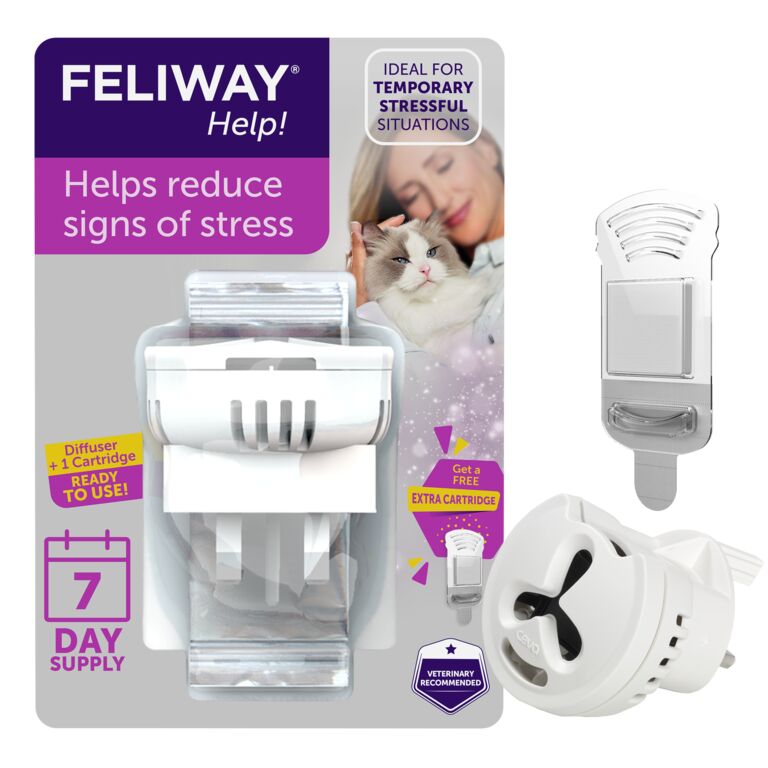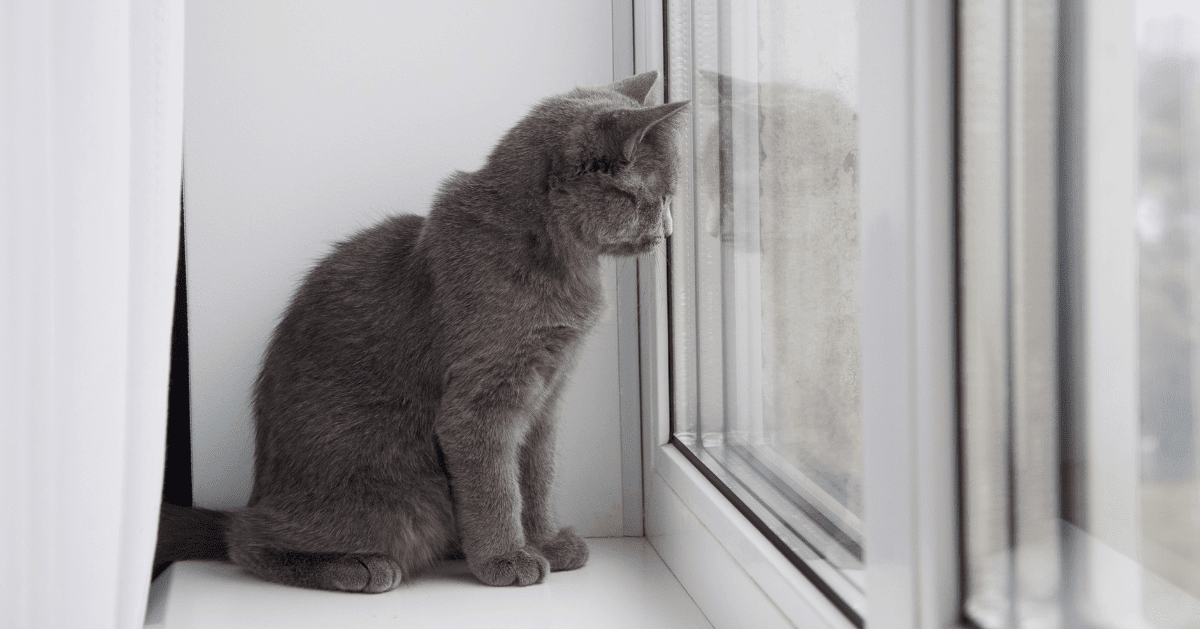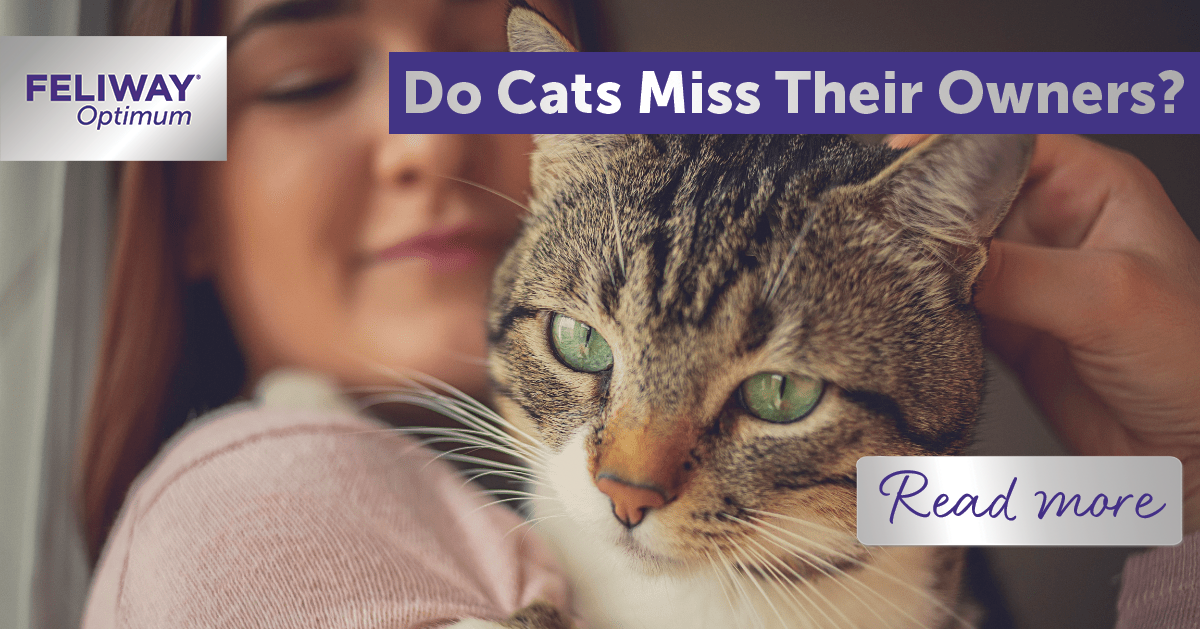
Do cats miss their owners?
The relationship between cats and their owners is an affectionate one - we often miss our feline friends when we go away or on holiday. But you may wonder, are they missing us too? Do they notice when we're not at home?
Although some might feel that cats are aloof - and that they merely get us to do things for them (it's their house really!) - cats do form bonds with people, and they want to have friendly relations with the humans they live with.
How do you know if your cat is missing you?
Cats are quite fussy when choosing their friends - a cat's relationship can differ between people in the same household. However, there is evidence that suggests that a cat can form a secure attachment to their owner (which is the sort of attachment humans form with their babies), and see their owner as a source of safety and security - they can be less stressed if their human is with them in new environments or situations.
Research has shown that cats will often choose interactions with humans over interacting with food or toys.
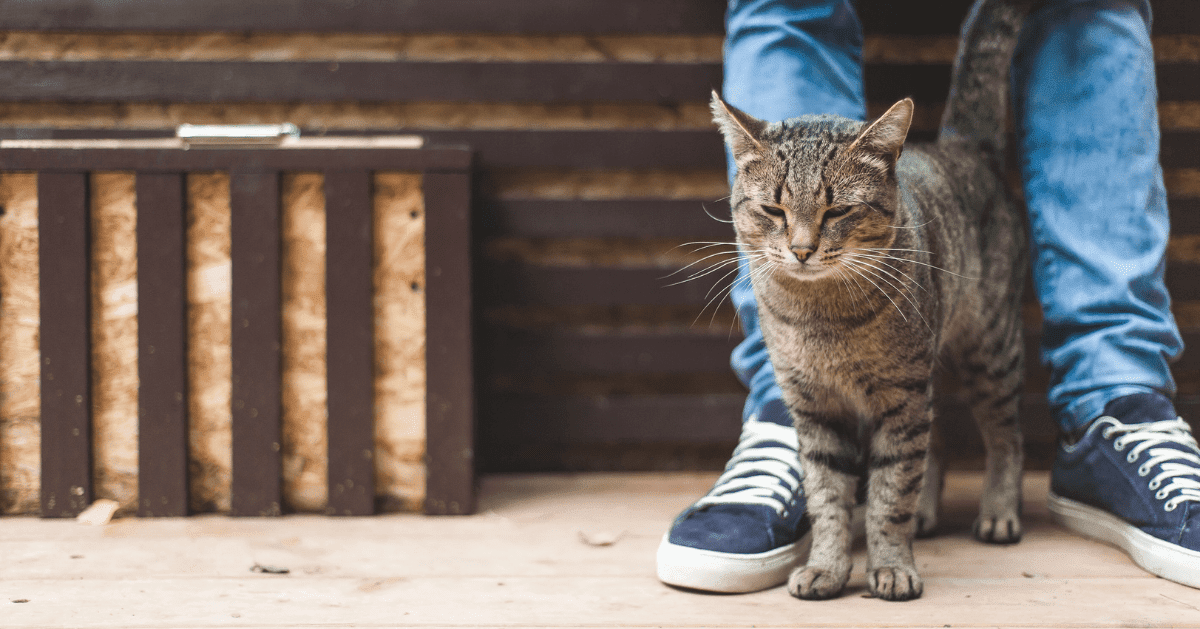
But all cats are unique individuals! Some cats enjoy having more alone time, whereas others prefer having constant human company. Their early experiences as a kitten can influence how social a cat becomes. In a similar vein, this means that some cats cope better than others when you're not there and they have to spend time alone.
Although cats don't wear their heart on their sleeves the way that dogs do, look out for these signs that your cat has missed you while you were out:
- Extra purring and stretching when you return home - this is a sure sign that they're really happy to see you!
- Following you around the house - they may also be rubbing against your legs too.
- Agitation - some cats may seem agitated when you return. Also, watch for out-of-character behaviour; some cats may urinate outside the litter tray, for example, urinating in your bed, taking comfort in an area that has your scent.
- Some cats may become unwell when their owner is away, e.g. show signs of cat flu, even when a familiar person checks in on them. Always take your cat to the vet if your cat seems out of sorts, just to rule out any underlying conditions.
7 tips to help your cat when they're home alone
Of course, you can't stay at home forever, and as more of us are going back to workplaces after Covid restrictions, taking your cat with you isn't usually an option!
Make sure you know the signs of anxiety in cats and if you can see signs that your kitty is missing you, or having a hard time adapting to being home alone, here are some tips to help keep them happy when you're not there:
- Leave your kitty with interactive toys to help keep them mentally stimulated while you're out. Puzzle and activity feeders can be a great option and also more closely mimics the way wild cats have to hunt and catch their food.
- As long as seeing birds (and potentially other cats) through the window doesn't create frustration for your cat, having access to elevated spots to look through a window can also be entertaining.
- Make sure that your cat has access to all their resources while you're away, including food, water, and litter tray, as well as their favourite resting spots. Using FELIWAY Optimum in your cat's favourite places can also help them feel more serene at home, reducing signs of kitty stress - and supporting them when they are missing you!
- Consider hiring a cat sitter to come into your home and interact with your cat while you're away - or a friend or neighbour that gets on well with your cat.
- Ideally your cat's regular routine would be kept as normal as possible when you're away, e.g. ways and times of being fed, access to water, cleaning of litter tray and playtime.
- Try and be consistent with absence from the home if possible. If you're going to start spending time away from home, get your cat used to spending time without you (starting with moving to a different room in the house, to being out of the house in the garden and then further away). Use rewards when they stay calm when you aren't there and slowly increase the time period depending on how your cat reacts.
- You can also install a video camera to capture what your cat does when you aren't there. There are some that are connected to an app so you can easily keep an eye on your cat while you are not there.
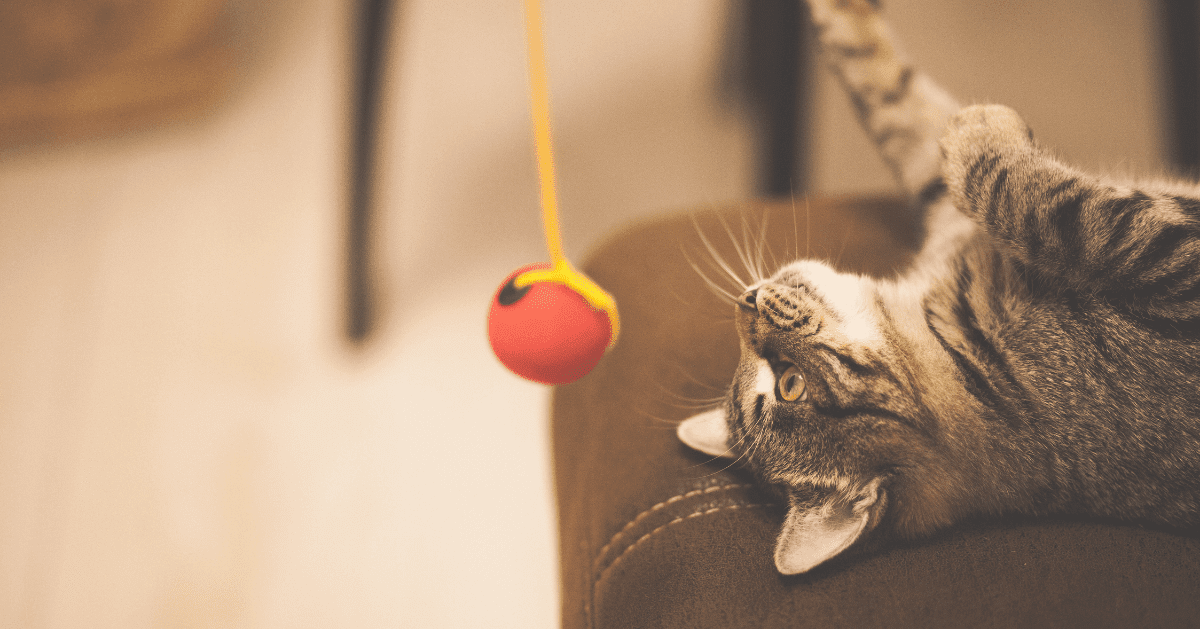
Be a friend to your cat
Ensure you set aside some time to play and bond with your cat when you are at home! If you're concerned about how they're coping with time on their own (for example, they're showing signs of stress such as overgrooming, vomiting, or urinating out of the litter tray when you're not there) contact your vet to ensure there are no medical issues affecting them. A qualified behaviourist will also be able to work out an individual play to help your cat in this situation.













